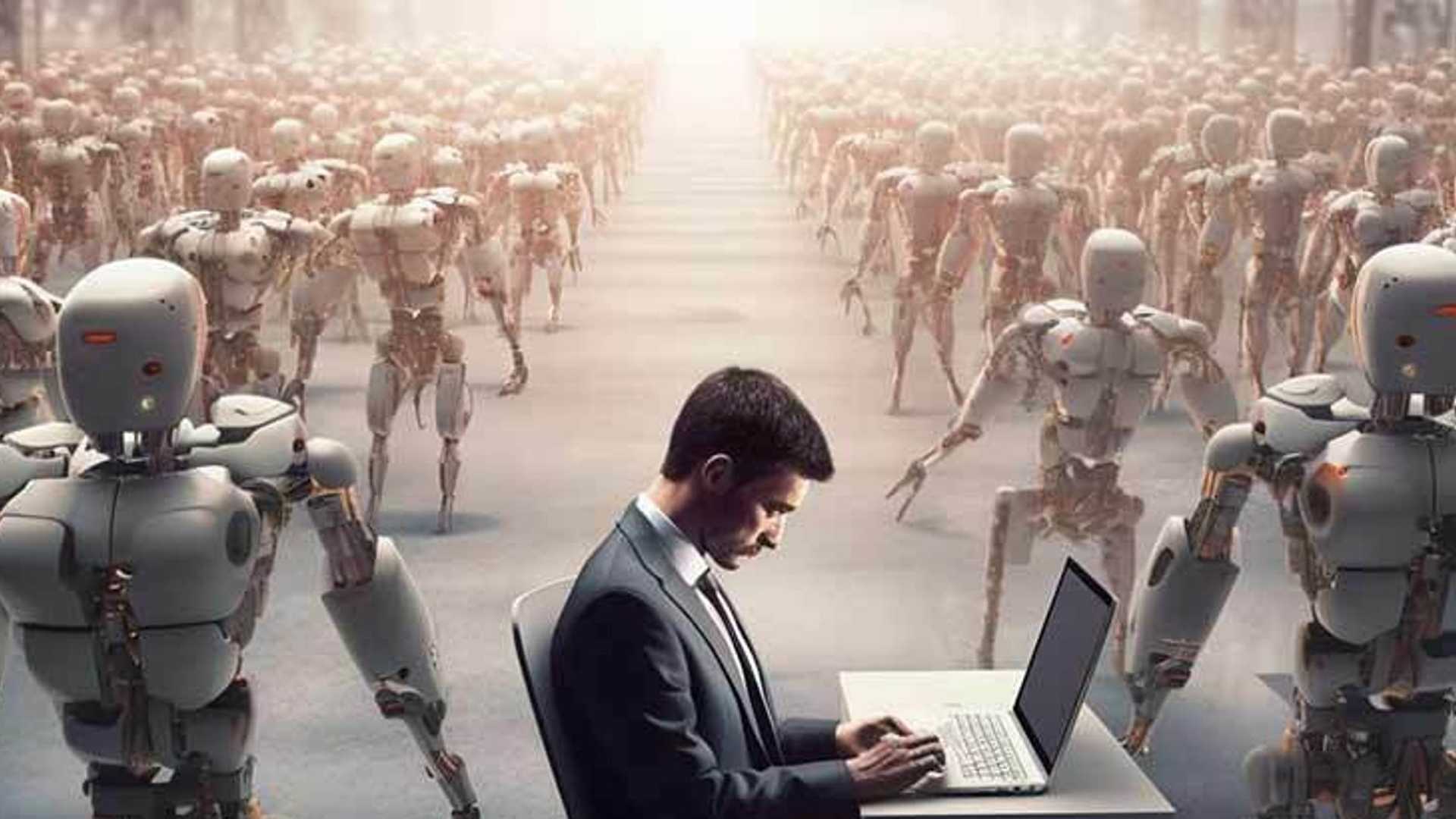ChatGPT: The 10 Jobs Most at Risk from AI
Since its launch in November 2022, ChatGPT has been making waves in the tech industry, becoming the fastest-growing web app of all time. Its arrival has sparked a wave of predictions around its impact on the job market, with OpenAI's own estimates suggesting that the software could disrupt 19% of jobs in the US.
ChatGPT has been open about the likely impact of generative artificial intelligence (AI) and related technologies on the job market. According to the chatbot, the top 10 jobs most likely to be impacted by AI include:
Telemarketers
With ChatGPT and AI's ability to handle customer inquiries and provide personalised responses, the need for human telemarketers may decline.
Data Entry Clerks
AI systems can be used to automate data entry tasks, reducing the need for human clerks.
Receptionists
AI-powered chatbots and virtual assistants could be used to handle phone calls and scheduling, reducing the need for human receptionists.
Bookkeeping and Accounting Clerks
ChatGPT and AI can automate bookkeeping and accounting tasks, such as data entry and basic analysis.
Retail Salespersons
With the growth of e-commerce and online shopping, traditional brick-and-mortar stores may become less relevant, leading to a decline in the need for retail salespersons.
Bank Tellers
As more customers switch to online banking and mobile apps, the demand for human bank tellers may decline.
Customer Service Representatives
AI-powered chatbots can provide quick and personalized responses to customer inquiries, reducing the need for human representatives.
Travel Agents
With the rise of online travel booking platforms, the need for human travel agents may decline.
Insurance Underwriters
AI can analyze data and make risk assessments more accurately and efficiently than humans, potentially reducing the need for human underwriters.
Warehouse Workers
The rise of robotics and automation could lead to a decline in the need for human warehouse workers.
It's difficult to predict with certainty which jobs will be most affected by the rise of ChatGPT and AI, as the impact of these technologies will vary across industries and job roles. However, based on current trends and the potential capabilities of these technologies, the aforementioned ten jobs could be at risk.
Automation has been a key driver of inequality around the world in previous decades, with the US National Bureau of Economic Research finding that 50-70% of changes in US wages since 1980 are due to the impact of automation. OpenAI's own research suggests that 50% of the tasks necessary for 19% of the jobs in the US could be replaced by ChatGPT and similar technologies, and 80% of the workforce could have at least 10% of their work tasks affected in some way.
While these jobs may be at risk of being automated, the implementation of AI and ChatGPT could also lead to the creation of new jobs and industries. Additionally, many jobs will require a combination of human and AI skills, meaning that workers with strong digital skills are likely to be in high demand in the future.
In conclusion, while AI is expected to start replacing jobs in many sectors, it will create jobs in others. It is worth recognising that AI is not a new technology. It's been around for decades, but recent advancements in machine learning and natural language processing have enabled AI to take on some of the more intricate tasks and, often, some of the most monotonous too. With the rise of automation, robots and machines are increasingly capable of performing repetitive and labor-intensive tasks, such as assembling products or packaging items.










